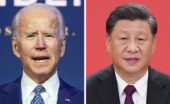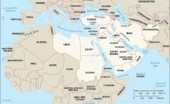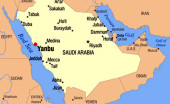Re Ian Bremmer 'Could third-party candidates upend the 2024 US election?' 3 April The current political movement in the USA…
Wednesday Night #1664
Written by Diana Thebaud Nicholson // January 22, 2014 // Wednesday Nights // Comments Off on Wednesday Night #1664
Gerald Ratzer treated us to an example of his numerology skills , dissecting 1,664 to prove that tonight should be the 32nd anniversary of the first Wednesday Night. However, leap years inevitably distort the calculations. In fact, the first Wednesday Night was held in February 1982. This led to a discussion of the work of the gifted and eccentric 20th century Hungarian mathematician , Paul Erdős,
Happy News: Cleo Paskal will be with us and we look forward to her world view as we seem to be increasingly turning inward towards the very Canadian/local issues that dominate our media and conversation these days.
Stephen Harper’s first trip to Israel is generating much comment and by no means is it all favourable. It seems that the Canadian public (or at least the chattering classes) does not offer the same unconditional love to that country’s government and policies as does Mr. Harper (“Through fire and water, Canada will stand with you,”). Commentators either view the trip with its large delegation (Stephen Harper travelling party reflects significance of Israel trip) as an unnecessary expense for taxpayers (Stephen Harper heads to Israel with taxpayer-funded delegation , or as yet another sign that the current government has completely abandoned any pretense of continuing Canada’s role as a multilateralist peace maker.
Best comment we have seen to date is Adam Goldenberg’s: The Prime Minister flew 21 rabbis to Israel with him, which seems like a very expensive way of saying, “some of my best friends are Jewish.”
Among a number of critical commentaries on the foreign policy optics of the trip, Tony Burman’s is the strongest: Time for Canada, Israel to stop living in fantasy world: Burman
As Stephen Harper’s vanity tour of Israel begins, we can be confident about two eventual outcomes.
For Canada, its reputation in significant parts of the world will sink ever lower as a result. And for the State of Israel, it will have even more reason — with friends like Canada’s prime minister — to fear for its future.
Not all the criticism comes from Canada:Ahmad Tibi: Why I Walked Out On Stephen Harper’s Speech. And not all Canadians are critical: Andrew Coyne: Harper’s Knesset speech was passionate, sincere, and — for the most part — right
In other events in the Middle East, UN secretary general Ban Ki-moon, has retracted his invitation for Iran to attend Wednesday’s summit on Syria, after Tehran said it did not support the June 2012 political transition deal that is the basis for the talks. And at the same time, the West and Iran activate landmark nuclear deal — Iranian officials hailed a warming of ties that will also see their new president make a pitch to international business leaders at Davos later this week: “The iceberg of sanctions against Iran is melting,” the head of Iran’s Atomic Energy Organisation, Ali Akbar Salehi, told Iranian state television.
For those who missed his recent column Higher interest rates needn’t kill economy Bill Watson argues If rates do go up, and at the same time anxiety comes down, we might have the best of both worlds: more capital, infrastructure and income but without necessarily killing off all the world’s rentiers.
Everyone who is Anyone (except Stephen Harper) is headed for Davos this week. At least everyone who can afford the fee; and despite the pious words of Klaus Schwab,, as The Guardian points out: Davos debates income inequality but still invites tax avoiders — The rich and powerful at the World Economic Forum are not as worried as they should be about the gap between rich and poor. The Chinese are coming en masse.
One of the more intriguing revelations comes from Robert Greenhill, Managing Director of the WEF: Participants at the World Economic Forum’s Annual Meeting in Davos expect to discuss pressing social and economic issues. They may not expect to be handed wearable gadgets that tell their smartphones if they’re walking far enough or getting enough restful sleep. But that’s happening at this year’s meeting. We want to convince the world’s corporate, political and civil society leaders that good mental and physical health is one of the most pressing social and economic issues of the day. So much for fat cats?
Don Tapscott presents a very positive picture of the Forum (Davos summit aims to press reset button) which we wish we could share.
One of the rare delightful pieces on Davos is Margaret McMillan’s essay The “Rich And Powerful” Flock To Davos: Now… And Then – what Davos might have looked like in 1914.
Meanwhile, in Quebec, the debate over the Charter continues to rage as the hearings start their second week on Tuesday. It’s hard to believe that anything can top the testimony last week of Geneviève Caron and Claude Pineault who were “shocked to find people praying on all fours at a Moroccan mosque”. It has to be seen to be believed. Subsequently their daughter defended them maintaining that her parents are open-minded and well-travelled. SIGH!
One of the most even-handed analyses of the current political situation is Beryl Wajsman’s The LÉGER POLL
“The Leger Marketing poll released this week was dismaying for several reasons. Obviously troubling was the fact that the percentages seem to put the PQ within reach of a slim majority government. But equally – if not more – troubling , is the fact that the reason for increased support for the government is broader acceptance of its identity initiative called Bill 60.”
And Kyle Matthews‘ latest contribution to the wave of commentary is The Parti Quebecois is playing a dangerous game with the Charter of Values
In an interesting counterpoint announcement, Mme Marois has announced a $10-million government investment in capital-risk firm White Star Capital that will set up an office in Montreal. (Quebec premier says values charter won’t impact foreign investment). She is, of course, on her way to Davos.
The Globe & Mail is publishing a wonderful series on the Canadian Arctic: The North– Myth, reality, future; the beautifully written introductory piece by Ian Brown: The Magnetic North is a Must Read.
The tar sands are again/still in the news. This time the local impetus is Neil Young’s four-city Honor the Treaties tour, designed to raise awareness and money for the Athabasca Chipewyan First Nation, which is suing the federal government and Shell Canada over the Jackpine Mine expansion proposal in northern Alberta. However worthy his reasons for undertaking the tour, Neil Young has not only been a bit casual with his facts, but has also failed to walk the walk . At the other end of the political spectrum, Joe Oliver appears to have been equally – or more- casual with facts regarding the Keystone XL pipeline in an interview presumably taped before he took off for Israel with Stephen Harper’s entourage. And, linking back to Davos, Allison Redford is participating in a panel on regulatory issues and climate change with Al Gore at Davos on Friday; she told reporters she will use the opportunity to disabuse Gore of “myths” she says critics use to unfairly tarnish Alberta’s bedrock industry- that should be fun! We hope that Désirée McGraw, who is attending the Forum as one of the WEF Young Global Leaders will bring back a full report.
CBC’s Doc Zone has aired another exceptional piece. To The Rescue examines the work of search and rescue teams across Canada and the shameful absence of any cohesive public policy, let alone funding mechanism, to sustain the operations and the valiant souls who make up the teams.
The search & rescue system in Canada is an emergency in the making. Ironically, the very system that should be ready to help us when we’re lost or injured in the great Canadian wilderness is sending out its own SOS call.
Stretched to its limits by the combination of an increasing number of outdoor adventurers and shrinking budgets, the SAR system relies to a massive extent on volunteers. Their skill and daring are impressive, but they’re putting their life on the line with every call – and sacrificing work and family commitments, all without pay.
Expectations of the patchwork system are also higher than ever because “weekend warriors” think they can call 911 or trigger a locator beacon from even the most remote wilderness. The traditional code of self-reliance is becoming lost, replaced by a false sense of security.
In the later part of the documentary (around 39:20), there is a segment about the rescue of passengers of a cruise ship in the Northwest Passage that underscores the scary weaknesses in Canada’s capabilities in the Arctic despite the fact that Canada encourages Arctic tourism.
For your entertainment: “Every Major’s Terrible,” as Performed by an Actual University Chorus Randall Munroe’s cynical ode to undergraduate indecision is a clever parody of Gilbert & Sullivan’s I Am the Very Model of a Modern Major-General, performed by the Simon Fraser University Choir.
Reminder
February 6 and 7
The McGill Institute for the Study of Canada (MISC), in partnership with the University of Alberta’s Petrocultures Research Group, is hosting Petrocultures – 2014
Oil, Energy, and Canada’s Future: the role of oil and energy in shaping social, cultural and political life in Canada at present and in the future. The widely diverse roster of speakers will no doubt provide both interesting information and passionate pronouncements. More information and to register



